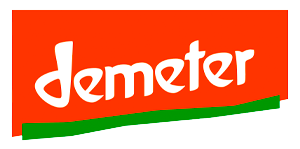 Free shipping from CHF 90.00
Free shipping from CHF 90.00 Choose from organic and Demeter coffees for unique enjoyment and fair, environmentally friendly cultivation

Organic coffee and Demeter coffee - two terms that often appear in connection with sustainable coffee enjoyment. But what is the difference? This much can be revealed: Demeter certification includes far stricter guidelines - from compliance with biodynamic production guidelines to a wide range of sustainability aspects.
Sustainability is the key to ethical, environmentally friendly and future-proof coffee production. But that's not all: sustainable farming methods often lead to higher quality coffee beans with unique flavors, which benefits both producers and consumers. Sustainable practices reduce the use of chemicals, protect soils, preserve biodiversity and protect the climate.
Organic coffee is more than just a drink. It is a statement for environmental awareness, fair trade and pure enjoyment. In contrast to monoculture in conventional cultivation, organic farmers rely on mixed cultivation, which means that coffee plants are allowed to grow together with other plant species. Why is that? This promotes biodiversity and makes the plants more resistant to disease.
Monocultures, on the other hand, harbor serious ecological and economic risks. Focusing on the cultivation of a single plant species over large areas leads to greater susceptibility to diseases and pests and to rapid soil depletion
Coffee plants are very sensitive. Too much heat, but also too much cold, damages them. Moisture is good, but not too much. Coffee farmers like to plant avocado, grapefruit or banana trees, coconut palms or eucalyptus plants next to coffee plants. These mixed cultures ensure that coffee plants are protected from too much sunlight and heavy rainfall.
Organically grown - sustainably enjoyed Conventional coffee cultivation often relies on chemical fertilizers, which provide short-term growth but deplete the soil in the long term. Organic coffee farmers, on the other hand, rely on compost and organic fertilizers. The result? Fertile soils where coffee plants feel right at home.
Fair trade, fair wages Organic coffee stands for fairness not only towards nature, but also towards the coffee farmers. Fair trade practices guarantee fair wages, so that every sip of coffee also bears some social responsibility. Incidentally, unlike conventional coffee, organic farmers harvest their coffee cherries by hand. Industrial harvesting methods are not used.
Do you want to enjoy first-class coffee with a clear conscience and value environmentally friendly cultivation methods and fair conditions? Choose your favorite coffee from our selected range of exquisite organic and Demeter coffees!